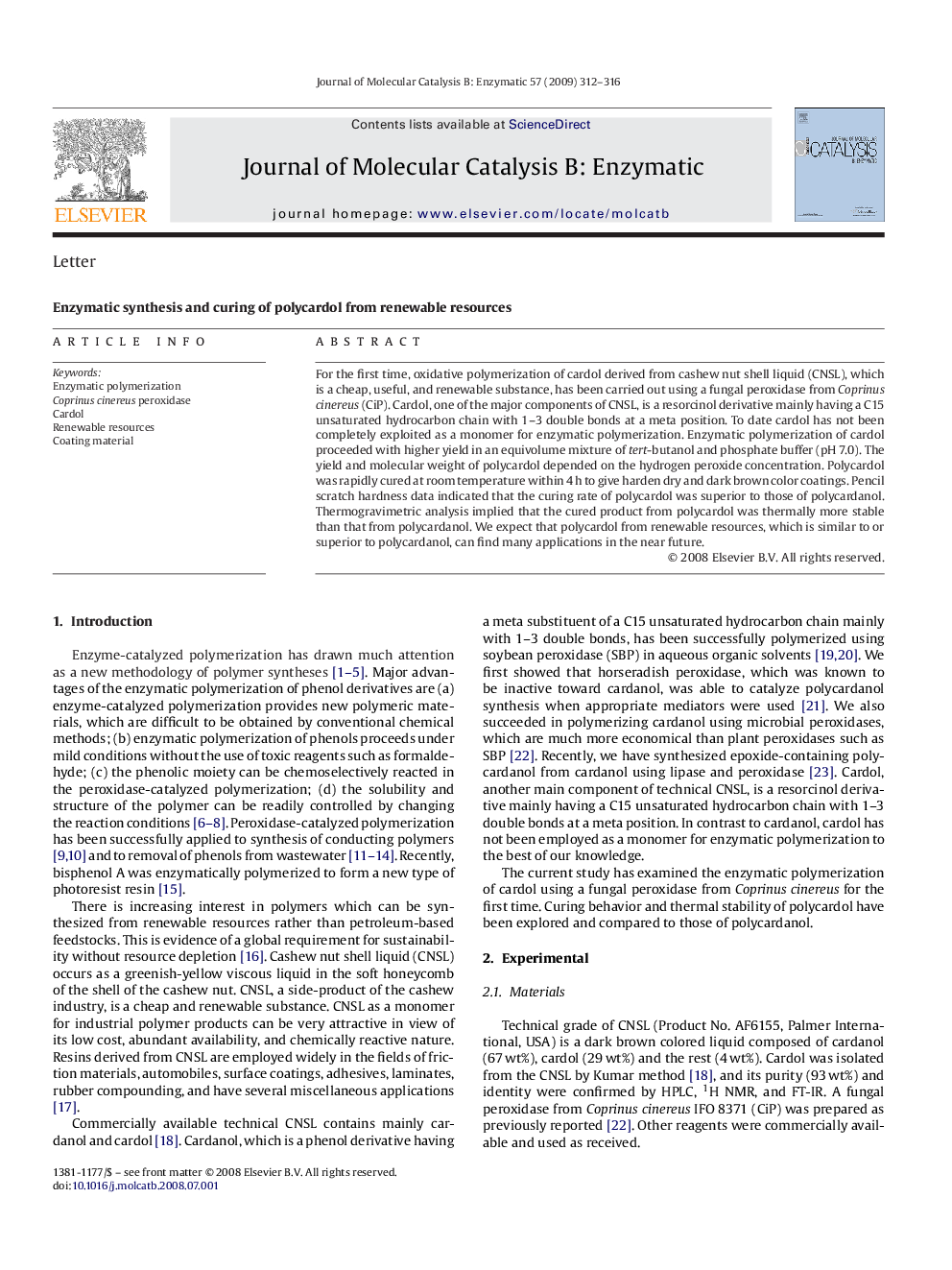| Article ID | Journal | Published Year | Pages | File Type |
|---|---|---|---|---|
| 70614 | Journal of Molecular Catalysis B: Enzymatic | 2009 | 5 Pages |
For the first time, oxidative polymerization of cardol derived from cashew nut shell liquid (CNSL), which is a cheap, useful, and renewable substance, has been carried out using a fungal peroxidase from Coprinus cinereus (CiP). Cardol, one of the major components of CNSL, is a resorcinol derivative mainly having a C15 unsaturated hydrocarbon chain with 1–3 double bonds at a meta position. To date cardol has not been completely exploited as a monomer for enzymatic polymerization. Enzymatic polymerization of cardol proceeded with higher yield in an equivolume mixture of tert-butanol and phosphate buffer (pH 7.0). The yield and molecular weight of polycardol depended on the hydrogen peroxide concentration. Polycardol was rapidly cured at room temperature within 4 h to give harden dry and dark brown color coatings. Pencil scratch hardness data indicated that the curing rate of polycardol was superior to those of polycardanol. Thermogravimetric analysis implied that the cured product from polycardol was thermally more stable than that from polycardanol. We expect that polycardol from renewable resources, which is similar to or superior to polycardanol, can find many applications in the near future.
